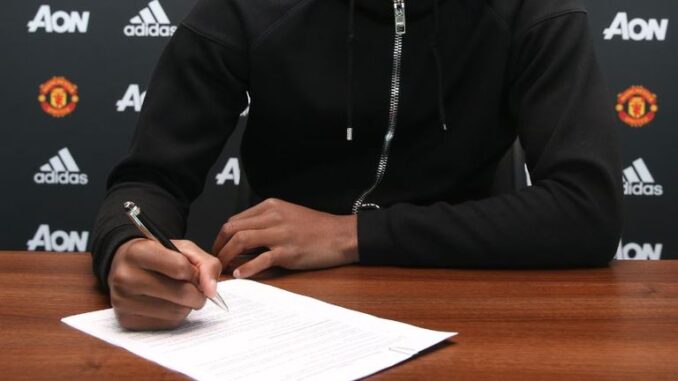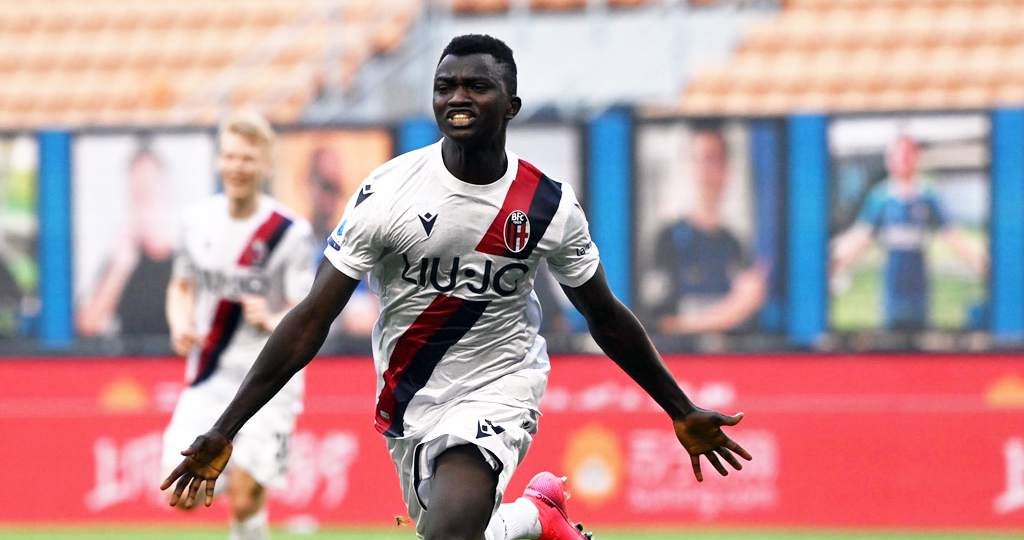
Jesse Lingard is a name that even casual soccer fans are aware of due to his English giant Manchester United exploits. Unfortunately, though, he was absent from the spotlight for a few years as a drop-off in form and personal issues reduced his playing time to basically nil in the first half of 2020. Rumors of his future were murky, as clubs and fans alike were calling him the next great Manchester United bust as there is a history of players moving on from the Red Devils only to perform poorly for their new clubs. Also, an obstacle was the massive wages that Lingard received every week. That is until plucky upstart West Ham United decided to roll the dice on him among a cavalcade of injuries to their own players. For 1.5 million pounds, West Ham picked up the Man U castoff for the remaining part of the season. It’s been a storybook storyline so far, as Lingard has scored nine goals and has dished three assists in 13 games, all the while West Ham has remained firmly in the hunt for European football and a top-five finish. Such a gratifying narrative made me wonder if such a system of loaning underused players to other teams could work in US Sports.
Before diving into those questions, let us summarize how the system actually works in world soccer. Any player under contract can be loaned to another team if all three parties agree to the loan terms. This includes any fees associated with acquiring the player, how much of the salary the receiving team is expected to pay, and any recall options should the loaning club want the player back. Two types of deals happen most often in soccer, a bigger club loaning out a player that does not play enough to a smaller team or a club using the loan system to acquire a player with an obligatory “option-to-buy” fee at a later date. This has helped giant clubs like Manchester United to clear salary off their books (i.e., Jesse Lingard) and smaller clubs (like West Ham) to benefit without paying a massive sum to bring in a talented player.
Now, in examining the three top US leagues (NFL, NBA, MLB), would any teams benefit from this system? In theory, the most expensive teams would, as the Golden State Warriors (NBA), New Orleans Saints (NFL), and the Los Angeles Angels (MLB), are currently spending money at a rate the is not related to current success. The Saints and Warriors are over their league salary caps, and the Angels are last in their division even with the league’s fifth-highest payroll. But in reality, money works differently in US sports than in soccer. Technically (as long as teams spend as much as they sell), soccer teams can spend as much as they like on player salaries as long as it meets Financial Fair Play laws. In the US, teams are capped at how much money that they are allowed to spend on a roster, so much so that the NBA regularly maxes out what they can spend on the best players. The NFL tries to incentivize players with non-guaranteed money to try and circumvent the cap in any way possible. US leagues do this to try and maximize parity, meaning that it is insanely difficult to carry too many expensive players on the roster. The ones that are burdensome money-wise are usually not playing for a reason, either because of injury or loss of skill. Other teams that are trying to win usually are not interested in such players and are close to their own salary cap, but there are maybe some instances it could work.
The New York Knicks currently have $80 million in cap space and are in the playoffs. The Minnesota Timberwolves have been out of the playoff hunt for weeks now and have multiple players that could have appealed to New York past the trade deadline. Ricky Rubio, for instance, is a player on a sizable deal that has been in and out of the starting line-up. The Knicks have a lot worse version of Rubio playing big minutes for them, Elfrid Payton. A loan for Rubio could theoretically make sense, as the Knicks are in the negative whenever their starting point guard is on the court. Excising him would allow for a steadier veteran to come in and solidify the Knicks rotation while free a cheap Minnesota ownership from a costly player, especially if the Knicks were to throw a couple of million dollars into the mix to make it worth the Wolves’ while. It could also reap benefits in that if Rubio plays well enough, the Knicks might be willing to give up draft capital for what was previously seen as an expensive contract. A loan could be worthwhile here, even if it looks different from a classic European transaction.
In the NFL, injury luck could play a huge factor and be a benefit to the league in terms of loans. The Pittsburgh Steeler’s running back room was injury-plagued in 2020, with James Connor unable to be a bell-cow back that could help an aging Ben Roethlisberger. With a clearly weakened offense, the Steelers limped into the playoffs after a triumphant 11-0 start and lost in the first round. Now, imagine if they had the option to pick a player up from a worse squad… say the Jacksonville Jaguars. It was clear by early in the season that the Jags were hoping to be terrible, gunning for the first overall pick and a chance to get Clemson star QB Trevor Lawrence in the draft. While it would work out anyways for them, they had the incentive to be as bad as possible. Even to the point that they’d possibly be willing to let an AFC rival borrow their star rookie running back James Robinson for the stretch run. Whether it’s a lump sum cash or if the NFL were to allow it, draft compensation. The Steelers are on the clock to be a Super Bowl contender as Roethlisberger is nearing the end of his career. They would certainly be willing to part ways with a draft pick to bolster one of the weakest parts of their roster for a potential playoff run.
Now for the cons of such a system. The league would not be a fan of basement-level teams giving away good players to contenders to try and tank away their season. In Europe, there is a natural disincentive preventing teams from doing that, relegation. In the Premier League, being a basement-dwelling team means that you’re kicked to a lower league in favor of one of the best from that lower division. If you’re bad, you are not giving away your best players for anything. American sports, though? There is actually an incentive to do poorly. American leagues push for parity, as they try to sell to every fan base in every city that the team in their market has a chance to win the title. The worst teams get to pick the best youth players eligible to enter the league during what’s called the draft. It’s gotten to the point that (especially in the NBA), you’re criticized for maintaining a .500 record for multiple years. If you’re not fighting for a title, you might also tank for a high draft pick. Allowing teams to offload their talented players would make that process worse and the league more stratified.
Also, other teams that are contending would be pissed. Imagine if, for the back half of the season, the Washington Football Team could have rented Matt Ryan from the Atlanta Falcons or Matt Stafford from the Detroit Lions? Suddenly, they go from a cute story led by the comeback player of the year (Alex Smith) to a genuine title contender. The Green Bay Packers, Tampa Bay Buccaneers, Seattle Seahawks, or any other NFC team would have to reckon with a new legit challenger for the Super Bowl. To prevent that, the league would have to find a way to prevent real difference makers from jumping ship. Find a way that only marginal contributors could jump teams. Like, if a player makes more than $10 million or has made a pro bowl – they can’t be loaned to another team. Still, the problem persists of the rich getting richer and the worst getting worse.
This is why, in the end, the system’s efficacy is problematic enough that there wouldn’t be enough positives to implement it. The only way it really makes sense in American sports would be to have bad teams give their good players to good teams to get better draft picks. It would create inequities and further imbalance a league structure designed to maximize parity. In Europe, the most common use of a loan system is good teams sending proven players that aren’t good enough to make it consistently on the field or young players that haven’t quite hit a level to play consistently for their parent club. Bad teams want them to stave off relegation and stay in a top-tier league or fight for promotion if they are in a lower-tier league. It makes sense. While some small cases where a loan could work out in the NBA or NFL, it’s not enough to deal with the extra headaches that general managers would cause by exploiting the system for additional advantages needed to excel in a salary cap league. As long as that structure is in place, the draft remains the same, and there are incentives for playing poorly, a loan system would never be allowed.



